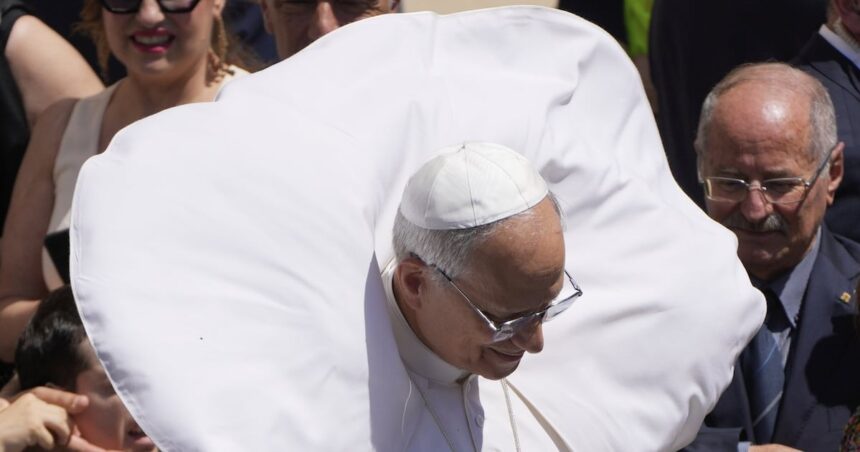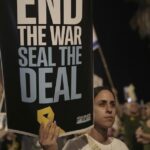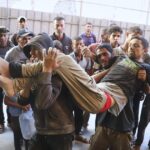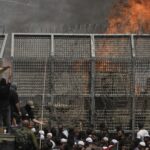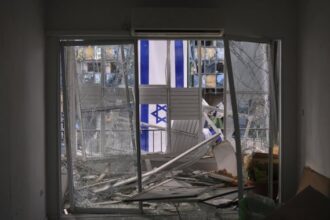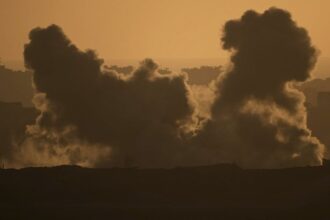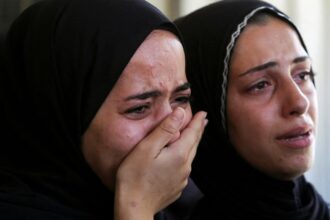In a powerful address delivered from St. Peter’s Square yesterday, Pope Leo XIV intensified his plea for an immediate ceasefire in Gaza, marking his most forceful intervention yet in the ongoing Israel-Hamas conflict that has devastated the region for nearly a year. The pontiff’s emotional appeal came as humanitarian conditions in the enclave reach catastrophic levels, with international aid organizations warning of imminent famine.
“The suffering of innocents cannot continue to be the currency of this conflict,” the Pope declared to thousands of gathered faithful during his weekly Angelus prayer. “I implore all parties and the international community: silence the weapons, open humanitarian corridors, and return to the path of dialogue.”
The Vatican’s diplomatic corps has simultaneously launched an unprecedented initiative, with papal envoys dispatched to key capitals including Washington, Jerusalem, and Doha to facilitate discussions. This marks a significant escalation of the Holy See’s involvement in seeking resolution to a conflict that has claimed over 40,000 Palestinian lives and displaced nearly two million people, according to UN statistics.
Analysts from the CO24 World Affairs desk note that the Pope’s intervention comes at a critical juncture, as ceasefire negotiations in Cairo show tentative signs of progress after months of deadlock. Egyptian mediators have reported that both Israeli and Hamas representatives have shown “cautious flexibility” on previously intractable issues.
Canadian Foreign Affairs Minister Mélanie Joly responded to the papal call by announcing that Canada will host an international humanitarian summit next month focused specifically on Gaza reconstruction and aid delivery mechanisms. “The Pope’s moral clarity reminds us of our collective responsibility,” Minister Joly stated in Ottawa yesterday.
The Pope’s appeal has resonated particularly strongly across the Middle East. Jordan’s King Abdullah II immediately endorsed the Vatican’s position, while Saudi Arabia’s Crown Prince Mohammed bin Salman pledged an additional $500 million in humanitarian assistance. Even in Iran, usually critical of Western diplomatic initiatives, state media gave prominent coverage to the papal statement.
Financial markets have responded cautiously but positively to these developments. Oil prices declined 2.3% on speculation that reduced regional tensions could stabilize energy markets, according to business analysts at major investment firms.
Inside Gaza, the situation remains dire despite these diplomatic movements. Dr. Marwan Al-Haddad, director of Al-Shifa Hospital’s remaining operational wing, told CO24 via satellite phone: “We welcome any effort toward peace, but words must translate to immediate action. Our patients cannot wait for diplomatic timetables while they die from preventable causes.”
The pontiff’s intervention represents a test case for religious diplomacy in an age of fractured international consensus. While previous papal peace initiatives have met with mixed results, Leo XIV has devoted significant Vatican resources to this effort, establishing a permanent Gaza humanitarian office and appointing Cardinal Miguel Ángelo Fernandez as his special envoy for Middle East peace.
As world leaders prepare to address this latest initiative at the UN General Assembly next week, the fundamental question remains: Will this renewed moral pressure finally break the cycle of violence, or will it join the long list of well-intentioned but ultimately ineffective appeals for peace in one of the world’s most intractable conflicts?

